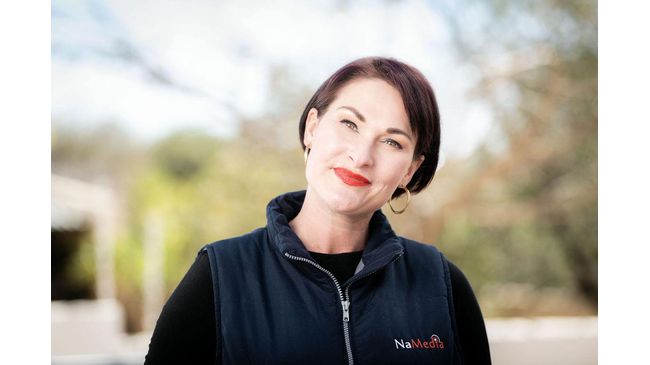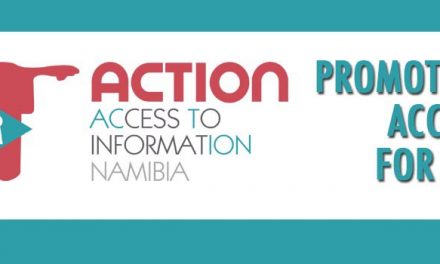
When being human(kind)

By Natasja Beyleveld, MD NaMedia.
Being in the media monitoring business, value is added to context and congruence. What is said in the political, versus corporate and economic or social arenas? Who sets the agenda by means of share of voice?
When public attention is directed to a specific story angle like Gender Violence, poor education facilities, political power, corporate social responsibility – we follow the leader, and debate cultural norms in need of change. The challenge for change versus the longing for the status quo is frequently intertwined in democracy and paperwork. Monetary status, decision-making, and budget allocation and implementation take the centre stage.
It has become another type of war, one directed more to citizens’ growing intolerance for corruption and deteriorating public services. Neighbouring South Africa has a population of more than fifty million citizens, we are about 2,6 million. The blame-game for race, colour, gender, heritage has been recycled to its own death. The corporate sector keeps on giving, to fill the gaps in a broken government budget that is dealing with the aftermath of corruption damage. Covid-19 unveiled priorities by means of government communications, which at times lacked consistency and precision.
When looking at data directed at Namibia’s labour force, corporates have come to understand that the employee and customer centricity is golden. It is a performance-driven communications approach. It’s a humble service-and-care approach, for most. In most government ministries, departments, police stations – there is rarely indication of a customer centric service approach. It is a workplace culture that condones comfort in income security to the expense of service quality, and an increasing yet clearly unsustainable salary bill. On the 9th of April the New Era reported; “As civil servants, we are all entitled to a 13th cheque (also called a bonus in general parlance) irrespective of our performance over the past 12 months (Name NSSCAS teachers grade 7 on salary scale’ and published by New Era on 1 April 2021).
The Windhoek Observer reported on the 19th of May 2021 that the public service wage bill will fork out a total of N$29 billion for salaries and benefits, which translates into about N$2.4 billion monthly. We are a population of millions, with approximately 20+% of our (mostly women and youth) people being jobless. Recently the minister maintained that the government will still continue to honour bonuses, which are paid out on each employee’s birthday. Repeat that to the men, women and children on the street.
Economist Mally Likukela also expressed concerns on the sustainability of the civil servant wage bill, stating that “the wage bill is not only unsustainable, but also growth stifling and counterproductive. The wage bill is not commensurate with productivity.” Is this in congruence with the Harambee Prosperity Plan?
Namibia’s civil service is reported to be over 100,000 strong, with the Cabinet consisting of 21 Ministers and 20 Deputy Ministers. A Namibian cabinet minister rakes in N$1, 089 000 per annum, including allowances translating to about N$91 000 per month, while a deputy minister takes home N$788 366 per annum. So on average, every civil servant earns N$290,000 per annum, translating into N$24,166 per month in salary. Does this address the high gini-coefficient?
We pay research companies to determine what a minimal wage should be for cleaners and taxi drivers. We have a tireless amount of strategic planning committees, come-back plans, most directed towards local business. Implementation and success rates remain low. President Hage Geingob has appointed yet another committee composed of business people and corporate leaders to find ways to rescue businesses in financial distress and to preserve jobs amid the ravaging Covid-19 pandemic.
What agenda of relevance are we setting when politics is dictating economics, -and the business sector for crisis management. To what extent is government contributing rather than alleviating the country’s financial situation for the business sector. We still hear about corporate sponsorships and -investments, dedicated initiatives that ‘keeps on giving’. We read more about corporates supporting government in a practical sense, as opposed to government communications on policy changes and practical implications.
We are all on high alert amidst the infiltrated impact of Covid-19 on human lives, families, and local businesses. During the past months, media has reported consistently and most negatively on strikes, unions, job losses, retrenchments, and sustainability management as a real concern. We have had great ideas, great investments, great social investments – and companies holding the Namibian flag high whilst reassuring their stakeholders with hope, and trust – because they are not only paid for innovative or essential products.
Governance and compliance are necessary to guide transparent projects and partnerships. But the elephant in the room is getting bigger, and those struggling with real concerns such as having no job, no income, no security, no birthday bonus, no salary increments; they are the ones our media is reporting of with utmost concern.
Namibian broadcast media by far reports most favourably on effective leadership. The news is guiding us in a) what is wanted, and b) what is received. Government also needs to communicate with stakeholders more effectively, less enlarge the public-private divide. Namibian banks are constantly reminding us to save, to invest wisely, to take out insurance, to manage debt, to be giving. And we believe that they are giving where it matters, and with transparency.
Again I ask, what type of leadership do we want to see, and what level of authenticity dominates the political agenda. When leadership fails to balance priority in stakeholder relations, and value the monetary value of those relationships more than the impact of decision-making on sustainable change, are we leading an agenda that truly helps those with a minority share in voice but with the greatest need?
Perhaps we need to be reminded to ‘Plan for what is difficult while it is easy, do what is great while it is small’ (Art of War, Sun Tzu). Perhaps we are drawn to re-evaluate our value system again. Sun Tzu also said; ‘Treat your men [citizens] as you would your own beloved son and they will follow you into the deepest valley’.
South African Jabulani Sikhakhane writes; “The failure to reform the South African economy explained by elite politics – wrangling in Cabinet and opposition to reforms by the business elite”. The Peace Research Institute in Oslo said that; “new research suggests that the pandemic is also destabilizing the fundamental relationship between citizens and the state”, “Our investigations show that the psychological toll of living through a pandemic also stoked anti-government attitudes and motivations for political violence.”
Perhaps we need to repair the ‘citizen centric’ communications and implementation approach throughout government budgets, salaries, spending, and priority. If leadership is what our country needs, it needs be more like the Sun Tzu version of it, and less about power and the monetary value of the stakeholder relationship.










































